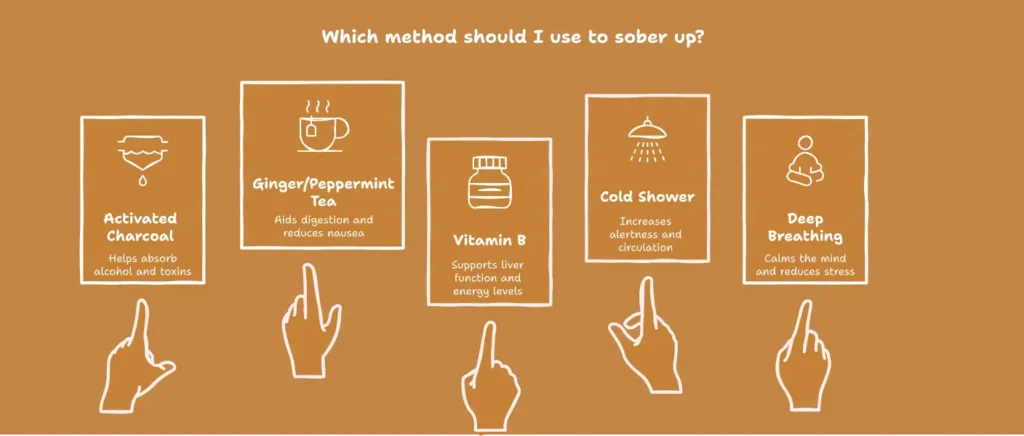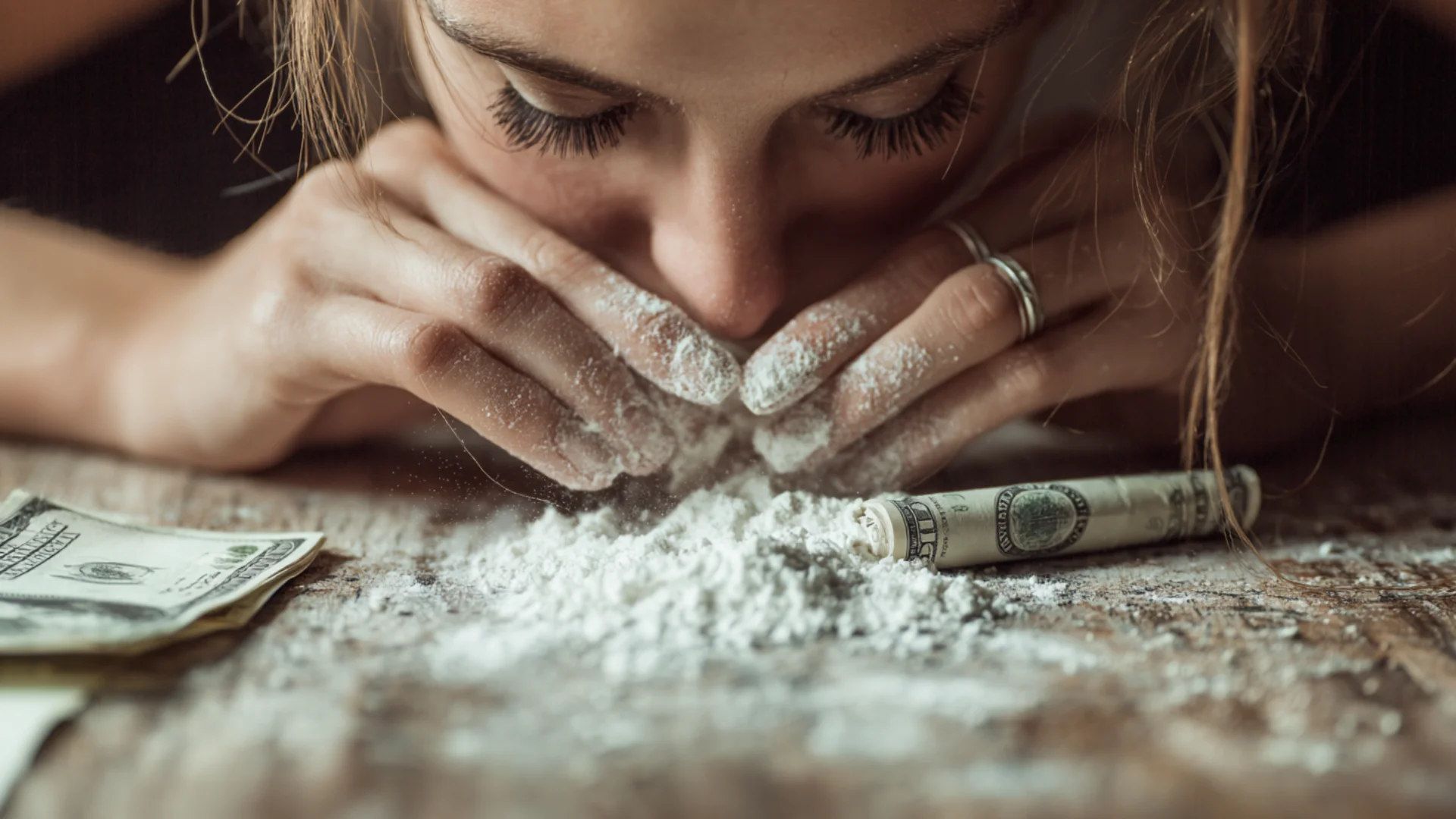Knowing the effects alcohol produces in your body remains essential for every individual who drinks occasionally. The onset of intoxication occurs subtly, leading to mental confusion and fatigue despite your desire for clear thinking. People who drink in excess must face several serious health risks that extend beyond the typical post-drunk headache into more severe future medical consequences.
There are multiple strategies to help you come back to normalcy at a faster pace after too much alcohol consumption during an evening. The following section presents proven methods to help you sober up.
Understanding Alcohol and Its Effects on the Body
The potent substance alcohol leads to swift and prolonged impacts throughout the human body. Consumption of alcohol leads to rapid bloodstream absorption that affects the central nervous system functions. Drinking alcohol often causes mood alterations, besides impaired decision making, along with decreased speed in responding.
More intake of alcohol puts excessive strain on your liver to process the substance. The accumulation of toxic acetaldehyde byproducts causes hangover symptoms, including nausea and headache. As an ingredient that promotes increased urination, alcohol causes dehydration in your body.
Alcohol modifies the neurotransmitters present in the brain tissue. When dopamine levels rise initially, alcohol produces pleasurable sensations; however, other parts of brain functionality, which promote clarity and focus, become suppressed. Several body functions affected by alcohol consumption explain why high amounts present serious health risks for both present-day functioning and future well-being.
The Dangers of Excessive Drinking
People generally fail to detect the extensive health problems caused by heavy alcohol consumption before irreversible damage occurs. Improper judgment and lack of coordination are immediate alcohol effects that put people at higher risk for accidents.
1. Dangerous Progression of Alcohol Use
Heavy and regular binge drinking leads to the dangerous progression of alcohol use that will eventually develop into alcohol dependency or addiction. Physical health and major psychological factors become significantly affected when this pattern develops.
2. Damage to Essential Body Organs
Long-term excessive alcohol consumption results in irreparable damage to vital body organs, affecting both the liver and heart tissues. Getting medical care for cirrhosis, along with cardiomyopathy, becomes necessary when people binge drink heavily for extended periods.
3. Relationship Deterioration
People who consume excessive amounts of alcohol suffer from declining relationships with their family members and their friends. Such conflicts resulting from heavy alcohol consumption continue to harm interpersonal relationships permanently.
4. Negative Societal Perception
Most individuals who fight alcoholism face barriers when trying to seek help because of the negative societal perception of their condition. People need to become aware of these safety risks to allow for better lifestyle choices and to motivate alcohol addiction treatment engagement whenever needed.
Tips for Sobering Up Quickly
A few effective strategies exist that speed up the process of sobering up.
1. Water Consumption
Start by drinking water. Water consumption assists in the elimination of alcohol from your body.
2. Nutritious Diet
Next, eat something nutritious. To hold steady blood sugar levels, eat foods with carbohydrates or protein, which also give you energy. You can choose between toast or crackers and fruit as food options.
3. Fresh Air
Get some fresh air too. Walking brings revitalization while allowing your mind to become clear. Taking deep breaths will serve to reduce feelings of nervousness that commonly arise due to intoxication.
4. Light Exercise
Perform very light exercise as an option for quick recovery. Physical movement helps increase blood circulation, which minimizes the time it takes to become sober.
Caffeine provides no long-term alcohol reduction and deceives users only through short-term masking of alcohol. Natural sobriety methods should be prioritized rather than relying on chemical interventions, since time will effectively facilitate the sobering process.
Hydration is Key
Sobering up depends heavily on proper hydration of the body. Drinking alcohol results in body dehydration because alcohol serves as a diuretic. Your water loss amounts to the total alcoholic beverages you consume. Fluid replacement will reduce some symptoms associated with intoxication. Your system retains balance while toxins leave your body due to the water flush mechanism. It’s simple but effective. Having one glass of water corresponds directly to each alcoholic beverage consumed. Your body recovery process becomes less dehydrated because of water consumption. High electrolyte content sports beverages and coconut water offer additional hydration benefits.
Coffee may appear quick-fix in nature, yet it offers fewer hydration benefits compared to regular liquid water. Your body needs hydration above all else to deal with alcohol better and safer.
Eating the Right Foods
Consuming particular foods will determine how fast your body will recover from alcohol consumption. Your body recovers from alcohol through the consumption of nutrient-rich food items.
1. Whole Grains and Fruits
Complex carbohydrate foods, including whole grains and fruits, serve as your first eating choice. This food releases energy steadily through digestion, which creates stable blood sugar. Bananas prove valuable in hydration because they provide potassium.
2. Eggs with Lean Meats
Protein is another essential component. Eggs with lean meats help the liver execute its duty for alcohol metabolism.
3. Water-Rich Smoothies & Soups
Hydration should also be obtained through appropriate food choices. Smoothies and soups enhance both brain function and emotional stabilization when managing the ups and downs commonly seen during hangover periods. When it comes to post-drinking recovery, you need to make wise food choices because they serve as a primary factor for healing.
Exercise and Fresh Air
Leaving the area to go outside changes your condition during alcohol consumption. Accepting fresh air improves both mental and physical state. During recovery from alcohol, a brisk walk or light jog will increase blood circulation. More circulation in the body accelerates the removal of toxins from the system. Physical activity produces endorphins, and these mood-benefiting hormones work to lift your spirits.
The natural environment has an automatic power to calm your mental state. Green spaces, along with trees surrounding you, help decrease anxiety and minimize stress levels in people. The location near water provides an enhanced advantage. The relaxing atmosphere is enhanced by the simultaneous presence of gentle wind along with the ocean wave noises.
Observe your physical condition while making choices about your activities. The feeling of dizziness or illness requires you to move cautiously without exceeding your physical capacity. The power of relocating your body and the rewarding experience of nature bring efficiency in sobering up, along with a personal connection to its beauty.

Alternative Methods for Sobering Up
1. Activated Charcoal
Several people choose nontraditional methods to overcome their intoxication. Activated charcoal stands as one of the most chosen ways to achieve sobriety. The substances in activated charcoal work to draw toxins from your body, which may minimize the impact of alcohol on your system.
2. Ginger or Peppermint Tea
Purportedly, ginger or peppermint tea forms another alternative option for sobering up. The use of these beverages helps your digestive function better and decreases nausea, which leads to better comfort until your body fully removes alcohol from your system.
3. Vitamin B
Supplementing your diet with vitamin B provides additional benefits for sobriety. Brain-related nutrients, together with energy-promoting elements, can potentially offset particular symptoms associated with hangovers.
4. Cold Shower
People report that a cold shower brings them alertness by revitalizing their senses. The method provides a temporary shock that can improve wakefulness despite not functioning as a cure.
5. Deep Breathing Techniques
People report through informal reports that deep breathing techniques bring mental peace and clear thinking. Deep breaths enable better oxygen circulation between your body and brain.
The exploration of non-standard techniques creates several alternative paths that people can use to get rapid relief from intoxication besides standard approaches.
Conclusion
Quickly becoming sober can prove tricky, especially when alcohol has left marks on your body functions. People need to understand the effects that alcohol has on their bodies. Your ability to understand situational facts determines your promptness in implementing actions.
Your mind and body will experience major improvements through practical steps that include hydration, nutritious foods, light exercise, and spending time in fresh air. These recovery methods provide support to the body’s organic detoxification processes, though they deliver only short-term effects in removing alcohol intoxication. Several people prefer herbal treatments combined with mindfulness training over traditional medicinal approaches when they want whole-body treatment options.
The key process of working toward sobriety proves indispensable for improving life quality. Knowing alternative strategies for alcohol addiction treatment will give anyone hope that they can regain their life’s equilibrium.
The urine detection period for ETG ranges between 24 and 80 hours after alcohol consumption, based on various factors that influence its detection
What’s the Fastest Way to Sober Up From Alcohol?
The body requires one hour to break down one standard drink through liver metabolism as the sole method to become sober. The combination of water consumption with food consumption, along with regular air intake, can bring relief to the symptoms experienced during intoxication. You should steer clear of caffeine because it will not reduce drunkenness, but it might boost your energy.
Does Coffee Help You Sober Up Faster?
The consumption of coffee fails to reduce alcohol intoxication levels in your system. The increased wakefulness from caffeine does not reduce your blood alcohol concentration (BAC). Time is the only method to become sober, while drinking water and rest prove more effective than consuming alcohol.
How Long Does It Take for Alcohol to Leave Your System?
A healthy liver breaks down one standard beverage during the passage of each hour. Various elements, such as weight together with gender and food consumption, and metabolic rate, influence this process. Laboratory tests conducted with breathalyzers or blood samples have a detection period of alcohol that spans from 6-24 hours, based on the amount of alcohol consumed.
What Foods Help Sober You Up Faster?
Drinking alcohol after consuming egg-based or nut-derived foods results in slower alcohol entry into the system. Eating broth and bananas and consuming toast and crackers helps control nausea and maintain blood sugar after drinking.
Can a Cold Shower or Exercise Help You Sober Up?
Cold showers, along with physical exercise, both fail to enhance the rate your body breaks down alcohol molecules. Cold showers and exercise create short-term alertness, although they do not affect your BAC level. The secure method to become sober involves waiting for time to pass, as well as maintaining hydration and getting enough sleep.


